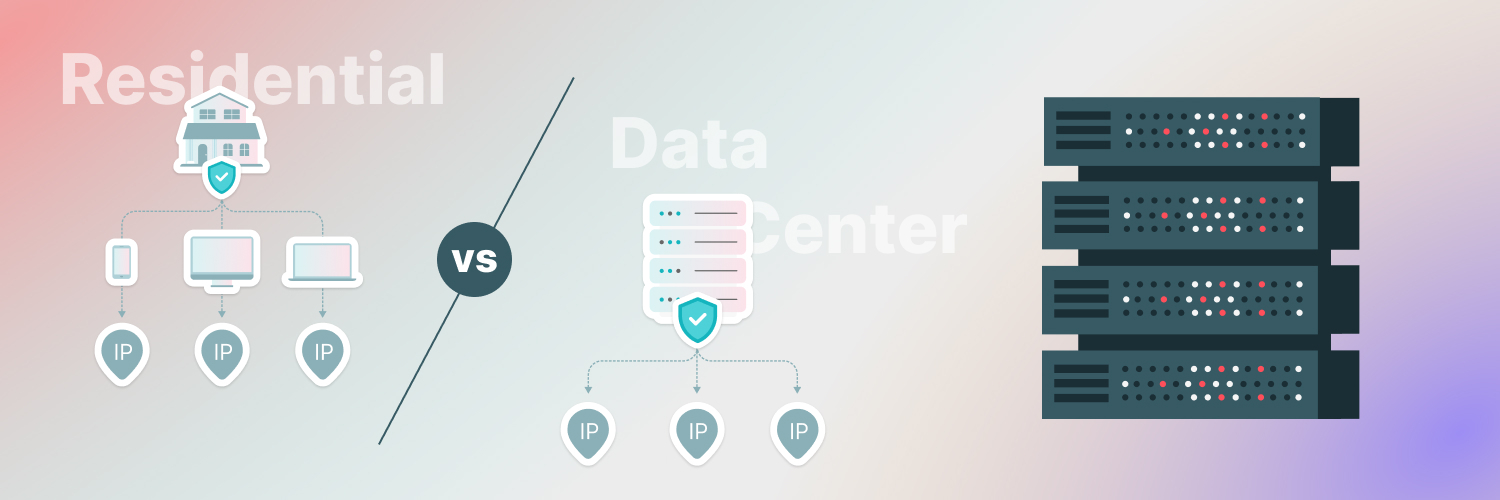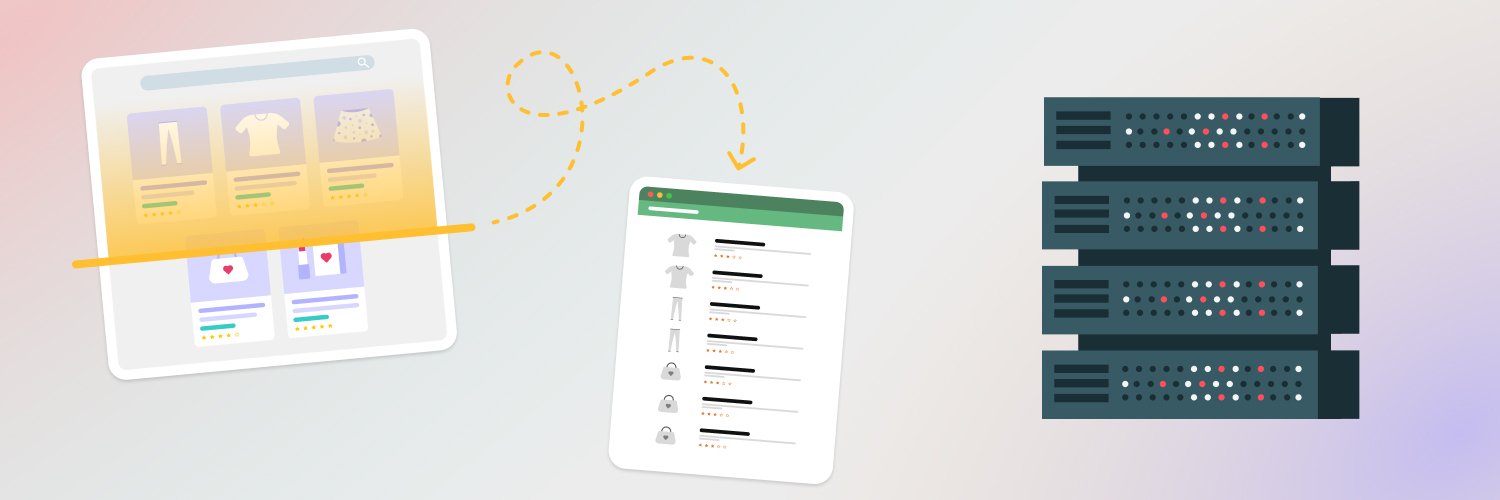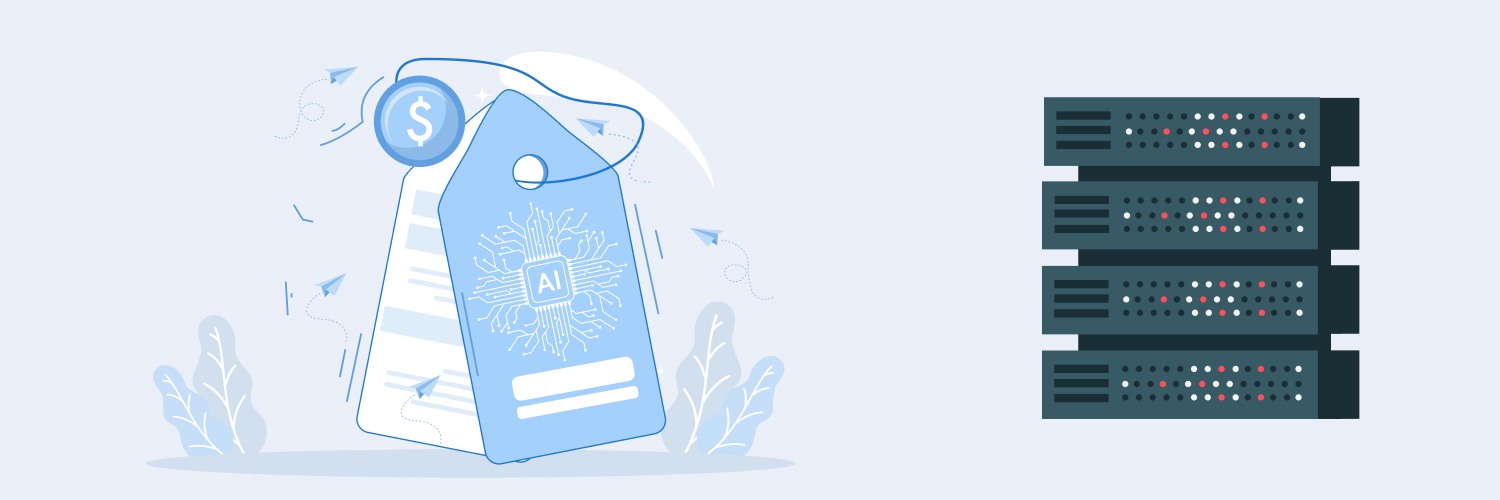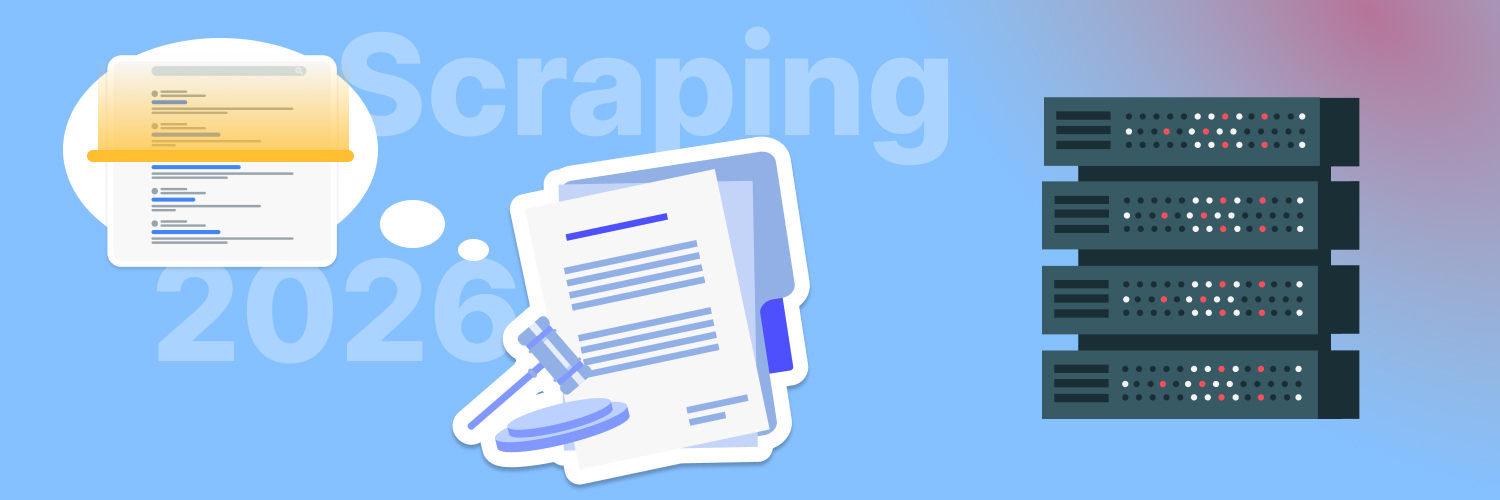The Ultimate Guide to Using Proxies With Anti-Counterfeiting Technology
When you’ve put in the hard work to identify a market need and provide a high-quality product to satisfy it, you can be certain someone will be waiting in the wings to steal it from you. Counterfeiting is a huge problem globally.
According to the US Government Accountability Office (GAO), counterfeiting demand is growing. Amounts vary by industry, but between 10 and 14 percent of sales are lost annually to counterfeit products. However, it’s not just your bottom line that counterfeits damages. In addition to lost revenue, harm to your brand, and loss of your customers’ trust, counterfeiting supports forced labor, human trafficking, and organized crime.
In this article, we’ll dive into ways anti-counterfeiting technology, such as web proxies, you can use to protect your brand. If you’re already familiar with some aspects of this topic, feel free to use the table of contents to skip around to relevant sections.
Why Anti Counterfeiting Technology Companies Exist

While some customers intentionally buy fakes, many are deceived by counterfeiters using stolen images that are indistinguishable from the real product. Because counterfeit products are made from lower-quality materials and produced with substandard quality control, this duplicitous type of counterfeiting is the most harmful to your brand.
Gone are the days when counterfeits were mainly sold by seedy-looking vendors with pop-up tables outside of business districts.
With counterfeiters selling at established and trusted online marketplaces such as Amazon, there is often no way for the average consumer to tell if they’re getting a great deal on an authentic product or a cheap knockoff. Using an anti counterfeiting solution online helps protect your consumers and, in turn, your brand.
The Problem With Finding Counterfeiters Online

Most online retailers will take down counterfeiters if they’re notified by the brand. The problem lies in the scope of counterfeiting activities. With 7.9 million online retailers in the world, ranging from small e-commerce sites offering just a few products to online giants offering millions, monitoring them all may seem like an impossible task.
Additionally, counterfeiters are using the latest tech to their advantage. When your customer interacts with your brand on social media, it can trigger a slew of counterfeit ads. These can annoy your customers, if they realize they’re counterfeits, or if they’re simply overwhelmed with ads from counterfeiters in addition to your targeted marketing. Worse yet, if they’re duped into buying a counterfeit product, it can erode trust in your brand.
Another problem with finding counterfeiters is that they don’t want you to find them. Counterfeiters walk a thin line between needing to be found by shoppers while avoiding being found by legitimate brands or trademark enforcement agencies.
Obviously, combing through millions of retailers on a regular basis manually isn’t affordable or practical. Even if it was possible, you’d undoubtedly be locked out of many areas based on the geolocation information embedded in your IP address. If counterfeiters are selling fakes of your product in China, one of the hottest marketplaces for such items, you may be geo-restricted from seeing what’s being offered, leaving you no opportunity to address the crime.
Anti Counterfeiting Technology Solutions

Fortunately, counterfeiters aren’t the only ones who can benefit from using technology. There are a number of anti counterfeiting technology companies offering solutions that can help you protect your brand. Using QR codes and RFID technology can help track your products. Trademarking your brand and educating your customers are also important anti counterfeiting measures.
While there are several other steps you can take to fight counterfeits, there’s no substitute for actually finding counterfeit listings and reporting them for take-down action.
Some online retailers have started implementing measures to fight counterfeit listings, but you can’t depend on that to protect your brand. Many counterfeiters either slip through these measures or have their own e-commerce sites. The ease of setting up a digital storefront means that as soon as one is taken down, another pops up.
Benefits of Using an Anti Counterfeiting Scraper

A web scraper is your most important weapon in the war against counterfeits. Combining proxies with a web scraping tool allows you to mimic customer behavior and find counterfeit listings regardless of where they’re located. Web scraping allows you to collect the data you need to find and take down fraudulent sellers that are harming your brand.
In theory, using an anti-counterfeit web scraper should be fairly simple; just plug in the appropriate keywords and set it to work. In reality, however, it can be quite complicated. Many websites have valid reasons for not allowing bot activity, so if they detect bot-like activity, your IP address will get banned and your web scraper will come to a screeching halt.
Using appropriate proxies will help you bypass anti-scraping measures. A proxy IP address can allow you to avoid geo-restrictions so you can find counterfeit products wherever they’re being sold. And rotating residential proxies ensure your web scraper appears human to the websites it visits.
In addition to using proxies, make sure you’re using ethical web scraping protocols to not only avoid bot detectors but also to be considerate of the websites you’re scraping. Crashing a website’s server by sending too many requests too rapidly is bad digital manners.
The following are some ways you can benefit from using a web scraper as an anti counterfeiting measure for your brand.
Scraping search engines
Scraping search engines is one of the best methods for finding illegitimate listings of your products. Search engines can return results that are wider in scope than crawling individual marketplaces. However, search engines present unique challenges to web scraping robots. Search engines often have anti-bot tactics in place that can result in your scraper encountering CAPTCHAs or being banned, which is why it’s vital to use proxies with your web scraper to avoid detection.
To effectively scrape search engines for counterfeits, set up keyword search terms that include specifics such as brand name, item type, and model number. Once your scraper has returned results and you’ve identified frauds, send a DMCA takedown notice directly to the website and to all involved third parties, including the major search engines. This will need to be an ongoing process since malevolent actors will often pop back up after being shut down.
Monitoring social media sites
Social selling, using social media to directly market and sell to customers, has opened up new avenues for businesses and, unfortunately, for counterfeiters as well. The countless hours of marketing research, content creation, and customer engagement that you put into your social media channels set up a lucrative environment for counterfeit products.
They hijack your hard work by marketing fake products directly to the customers who’ve expressed an interest in your products. Your customers may have no idea they’ve bought a fake, assuming the inferior product they received is indicative of your brand.
As with search engines, social media sites have anti-bot protocols designed to thwart web scrapers, which makes the use of proxies critical. Some sites automatically block IP addresses that originate at data centers. Others may allow data center proxies but will ban entire subnets if they detect any bot-like activity.
Checking online retailers
Although checking search engines will cast a wide net for counterfeiters, it’s important to check larger online retailers as well. Many counterfeit items are sold through large online marketplaces, making them an important target.
In addition, most items sold on online marketplaces are grouped into categories. This lets you target your scraping. If your brand is selling women’s shoes, you don’t need to waste your resources searching through all possible categories. You can focus your efforts on relevant items instead of searching all possibilities as you have to when scraping search engines.
Online retailers are no exception when it comes to blocking web scrapers. In fact, some of the larger retailers will ban subnets associated with data center IP addresses, which makes residential proxies a far more effective option for scraping them.
Image searches
Finally, scraping for images will help you find bogus listings since counterfeiters often steal authentic brand photos to market their fakes. This can be done with a reverse image search. By setting up a reverse image search and scraping all of the websites that return results, you can find counterfeit listings that otherwise might slip through the cracks.
Types of Anti Counterfeiting Proxies

When it comes to anti counterfeiting web scraping, choosing the right type of proxy is essential to your success. If you use the wrong type of proxy or an unreliable proxy provider, you’ll spend more time dealing with bans and downtime than you do scraping. Effectively scraping for counterfeits can require millions of scrapes per day. The challenges of anti counterfeit web scraping are best addressed using rotating residential proxies.
When choosing proxies, you have several different options. The best choice for you will depend on your use case, how frequently you send requests, and how you manage your proxies. The different types of proxies include:
Data center proxies
These proxy IP addresses originate in a data center, so it’s obvious that they aren’t coming from ordinary users. Data center proxies are good for some use cases, such as gaming, that may rely on speed and where mimicking human behavior isn’t crucial. These are the most common and usually the cheapest type of proxies.
Mobile proxies
Mobile proxies are IP addresses associated with mobile devices. These are the most expensive type of proxies but can be good for use cases such as mobile ad verification, UX testing, or other situations where you only need mobile-based data.
Residential proxies
Residential proxies are IP addresses that are associated with physical addresses. They’re issued by an internet service provider (ISP), and are the type of IP address that you probably have at your home or business. These are ideal for web scraping projects because they are the type of IP address that most people use. They make it impossible for anti scraping protocols to detect that they are a bot based on IP address alone.
However, residential proxies can still get banned if they’re engaging in bot-like activity such as making repeated requests far faster than a human could. If you simply substitute a residential IP proxy for your regular proxy, your project will still get banned quickly.
This is where proxy pools come into play. By rotating through a pool of residential proxies, you reduce the chances that you’ll get banned or encounter a CAPTCHA. And if one IP address does get banned, you can quickly replace it with another. For even more automation and ease of use, a proxy management solution will take care of proxy rotation and bans for you.
Choosing the Right Anti Counterfeiting Proxy Provider

There are several considerations to address when you’re deciding on a proxy provider. One of the most important factors when using residential proxies is making sure they’re ethically sourced. In addition to being the right thing to do, using ethically sourced residential proxies protects your business from the negative associations that come from dealing with untrustworthy vendors.
One of the best ways to find out if your proxy provider is committed to ethically sourcing residential IP addresses is to ask them about it. If they aren’t completely open and transparent about how they acquire residential IP addresses, you should reconsider doing business with them. Some companies bury their terms and conditions so deep that their end-users have no idea that they’ve agreed to have their IP address used.
In addition, you should make sure that your proxy provider only provides proxies for ethical use cases. If their customers are engaging in questionable business practices with their proxies, it can blow back on you. Finally, you need a proxy provider who is reliable and offers good customer support.
Conclusion

At Rayobyte, we want to partner with you to ensure your business’s success. Our rotating residential proxies are the most reliable and efficient solution for web scraping. You can rest assured that we are committed to ethically sourcing our residential proxies. Our end-users are fully informed about how their IP addresses will be used and are free to opt out at any time. We also offer 24/7 access to professionals who can help with any problems that arise because we are dedicated to going above and beyond to make sure your experience using our proxies is outstanding.
The information contained within this article, including information posted by official staff, guest-submitted material, message board postings, or other third-party material is presented solely for the purposes of education and furtherance of the knowledge of the reader. All trademarks used in this publication are hereby acknowledged as the property of their respective owners.



